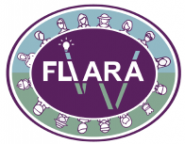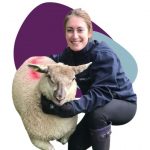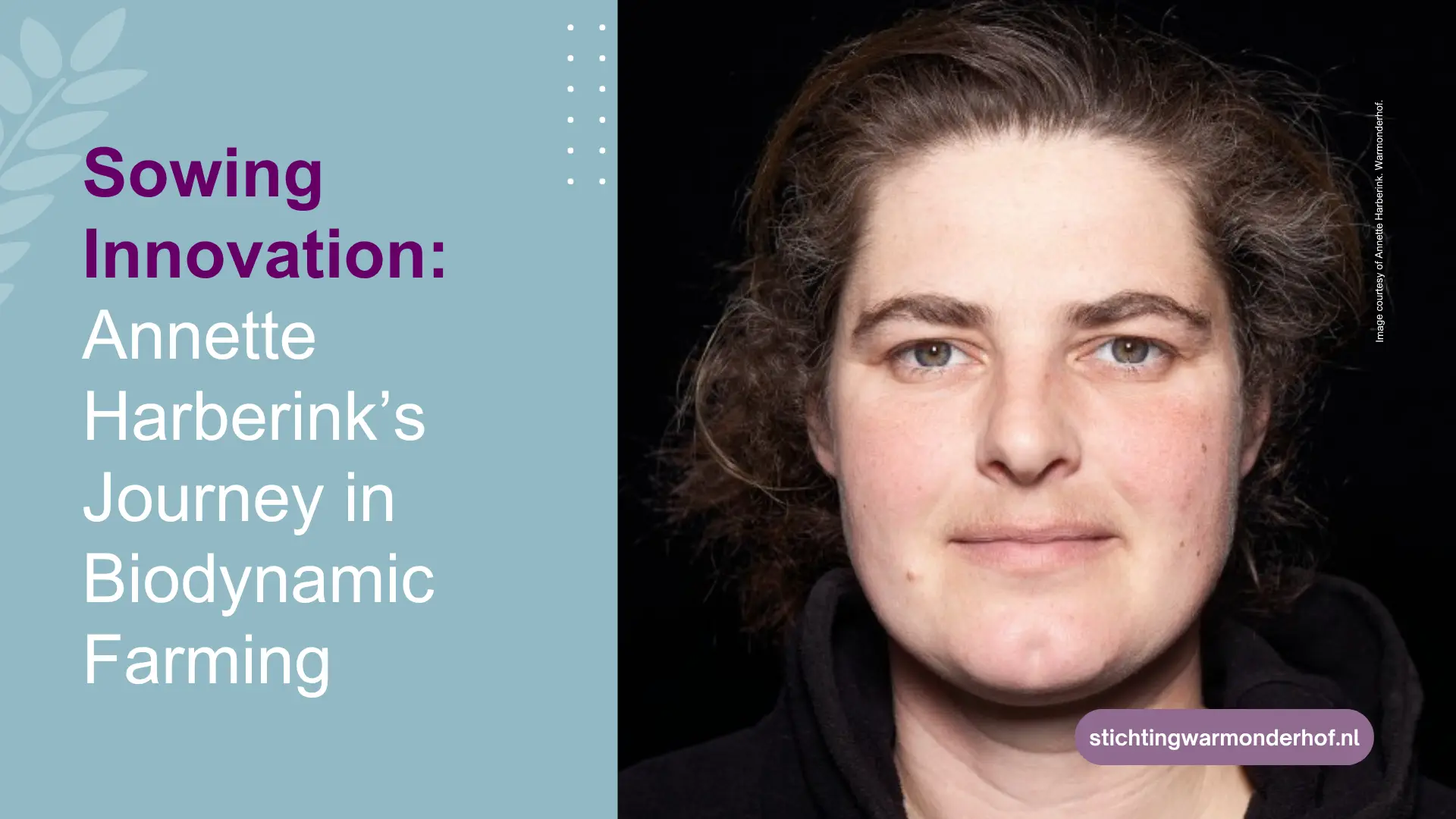It was during the FLIARA Community of Practice event in Ireland—buzzing with conversation, collaboration, and shared ideals—that we had the chance to sit down with Annette Harberink, a leading voice in biodynamic agriculture in the Netherlands. In a sea of innovation narratives, hers stands out not just for its vision but for its grit and groundedness.
Harberink is not your typical farmer—and that’s precisely what makes her journey so inspiring. Since 2021, she has led the Warmonderhof Foundation, a cornerstone of biodynamic agricultural education in the Netherlands. Based in Dronten, Flevoland, the Foundation offers hands-on training, student accommodation, and 85 hectares of farmland—all dedicated to cultivating both the land and future generations of sustainable farmers.
But Annette didn’t inherit a family farm. She built her path from scratch.
“I always knew I wanted to become a farmer, even though I wasn’t born into it,” she shared. “So I had to take a different route—what I call the ‘goat paths.’ I had to think creatively, learn differently, and carve out a way that didn’t yet exist.”
Those goat paths led her to Keizersrande, where in 2010 she began transforming a natural landscape near Deventer into a functioning biodynamic farm. Over twelve years, she shaped not just the soil but a model of farming rooted in ecology, circularity, and care—care for the planet, for people, and for the future of food.
“If you start with profit as your only goal, you’ll miss what really matters. Every good innovation begins with a meaningful idea.”
Her approach to innovation is both deeply personal and boldly systemic. In 2019, Harberink co-initiated Caring Farmers, a growing coalition promoting circular agriculture and challenging the mainstream industrial model. The network advocates for systems that restore rather than extract, drawing on community-supported agriculture, humane practices, and collaborative leadership.
Through her work at Warmonderhof, Harberink is also shaping the next generation of farmers, ensuring that biodynamic agriculture doesn’t just survive—it evolves. She coordinates closely with Aeres MBO Dronten Warmonderhof, an accredited educational institution offering diplomas in biodynamic farming, and she sees education as the front line of transformation.
“I want to show young people, especially women, that they can be changemakers. I had incredible women role models—now it’s my turn to be one.”
Still, she acknowledges that being a woman innovator in rural spaces comes with its challenges.
“At first, I thought being good at the job would be enough. But I learnt that you need more—you need networks, allies, and a bit of a thick skin. You have to include others in your vision and invite them to help make it real.”
That collective spirit is one reason Harberink values the FLIARA project so deeply. For her, FLIARA is not just a platform—it’s a movement.
“It’s a powerful opportunity to connect women who are doing amazing work in agriculture and rural innovation. I hope it inspires many more to develop their ideas, lead boldly, and reshape the system together.”
Looking ahead, her vision is clear: more sustainable farming systems, more women leading them, and more young people equipped to challenge the status quo. She believes that agriculture—when rooted in care, creativity, and courage—can be a driver of meaningful societal change.
And her advice to women looking to walk their own goat paths?
“Just carry on. Do what you’re good at. Don’t let anyone make you doubt your idea just because it’s different. That’s where innovation lives.”
In Annette Harberink’s story, innovation isn’t a buzzword—it’s a practice, a purpose, and a powerful invitation to rethink how we feed the world.



